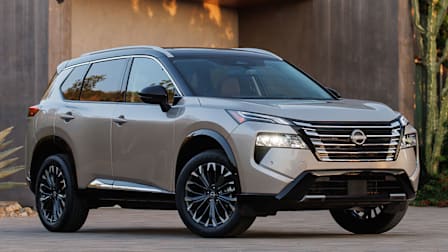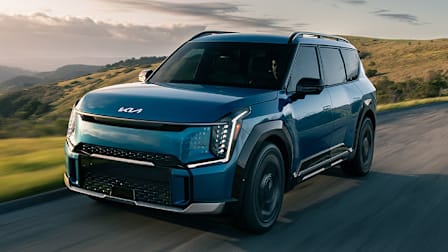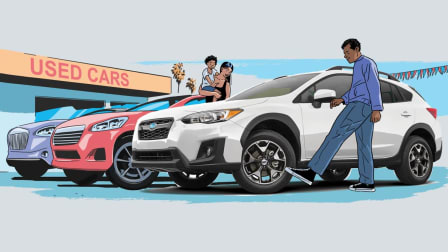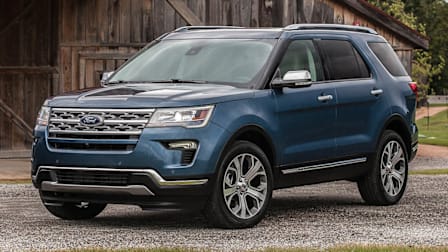Newer Cars From Several Automakers Are Recalled to Improve Child Car Seat Safety
Audi, BMW, Ford, Nissan, Volkswagen, and other companies used a faulty part that might make it difficult to install a car seat safely
Owners of newer vehicles from Audi, BMW, Ford, Nissan, Mitsubishi, Volkswagen, and other auto manufacturers should check to see if their car has a recall for a faulty seat belt mechanism that may make it difficult to install a child car seat safely.
The problem is with a component called an automatic locking retractor (ALR), which locks a seat belt for a snug car seat installation. (If you’ve ever pulled out a belt and felt it “clunk” and not move any farther, that’s the ALR doing its job.)
More than 135,000 vehicles from at least 16 brands are included in a series of recent recalls, including:
- 2021 Audi S3, A4, S4, A6, S6, RS6, A7, S7, RS7, A8, and S8 sedans (middle rear seat belts only)
- 2021 Audi A5, S5, and RS5 coupes and convertibles, and A6 Allroad wagons (middle rear seat belts only)
- 2021 Audi Q3, Q5, SQ5, Q7, SQ7, Q8, SQ8, RSQ8, and E-Tron SUVs (middle rear seat belts only)
- 2021 Bentley Bentayga SUVs (front passenger belt only)
- 2021 BMW 2 Series, 3 Series, M3, 4 Series, M4, and 5 Series sedans, coupes, and convertibles
- 2021 BMW X1 and X2 SUVs
- 2021 BMW Z4 coupes (front passenger seat only)
- 2021 and 2022 Ford Transit and Ford Transit Connect SUVs (front passenger belt only)
- 2021 Lamborghini Urus SUVs (middle rear belt only)
- 2021 Mini Cooper and Mini Clubman hatchbacks and convertibles (front passenger seat only)
- 2022 Mitsubishi Outlander SUVs (front passenger and second-row belts)
- 2021 Nissan Rogue Sport SUVs (front passenger and rear outer belts only)
- 2021 Porsche 911 coupes and convertibles
- 2021 Porsche Panamera and Taycan sedans
- 2021 Rolls-Royce Cullinan SUVs
- 2021 Rolls-Royce Ghost and Phantom sedans
- 2021 Toyota Supra coupes (front passenger seat only)
- 2021 Volkswagen ID.4 SUVs (rear seat belts only)
The problem is due to a manufacturing defect at Autoliv, a major seat belt supplier, and it affects ALRs built at certain Autoliv factories between Oct. 26, 2020, and Jan. 27, 2021. Because of a faulty lever in the ALR, the seat belt may become unlocked even after it’s locked into place initially during car seat installation.
Autoliv told NHTSA that a total of 266,772 ALRs need to be replaced, and that vehicles from Mercedes-Benz, Volvo, Jaguar, Land Rover, and Stellantis (the parent company of Chrysler, Ram, Jeep, Maserati, Alfa Romeo, Fiat, and Dodge) may also be affected in addition to the vehicles listed above.
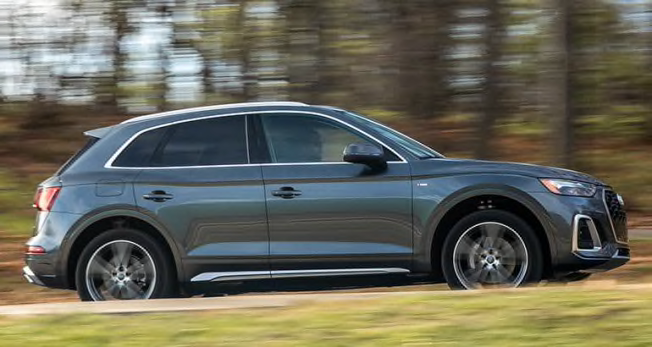
Photo: Audi Photo: Audi
So far, no recalls have been announced for vehicles from these companies, and none of these automakers have provided information to CR about whether recalls are imminent. We will update this article if more vehicles are added to the recall.
In the meantime, there are ways drivers can keep their children safe, including moving a car seat to a rear seating position that doesn’t have a faulty ALR, using the lower LATCH anchors if your car seat allows it for your child’s weight, and attaching the top tether for all forward-facing car seats. On many vehicles included in this recall, only the front passenger seat belts are affected, and it’s not recommended to install a child car seat in the front passenger seat in the first place.
Stay informed about recalls that might affect your vehicle by using our Car Recall Tracker. Create a free account now to become a CR member.


